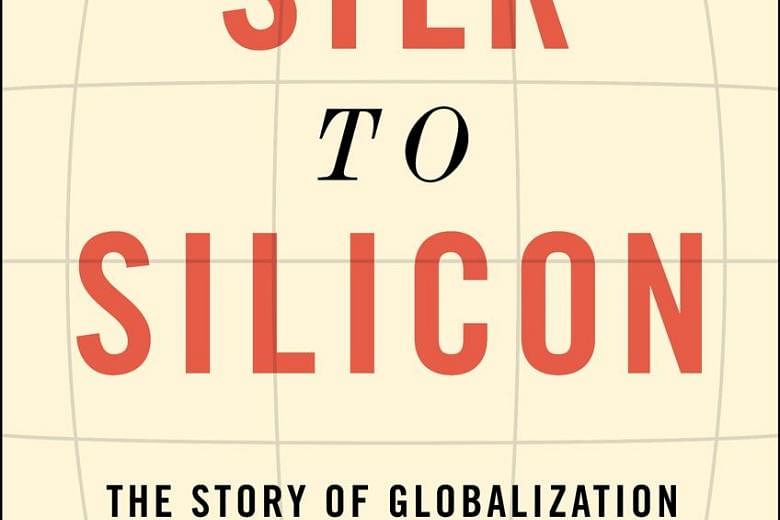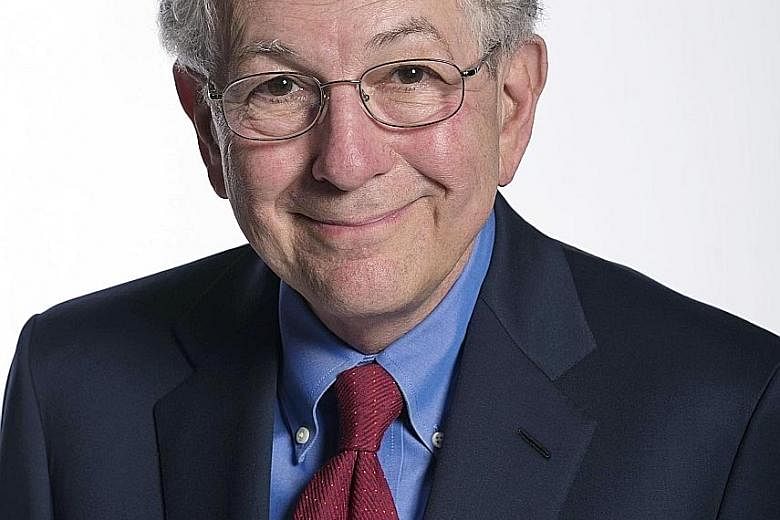It would seem fitting to liken effective leaders to foxes, with their swift cunning, and not hedgehogs, which draw uninspiring labels such as cute and vulnerable.
But American management don Jeffrey E. Garten, who was dean of Yale University's School of Management from 1995 to 2005, sees icons of humanity - such as China's economic revolutionary Deng Xiaoping, Germany's banking wunderkind Mayer Amschel Rothschild and Britain's Iron Lady Margaret Thatcher - as hedgehogs.
To him, the animal symbolises huge risk-taking, sustained focus on one big idea and stoicism in the face of repeated failure. He writes: "Their power to focus on one big idea for so long engendered a simplicity and clarity to the complex manoeuvres that were required to execute their ideas."
Garten, 70, has the long view on globalisation, having been a leader, manager, broker and teacher since the 1960s. He worked on trade, finance, energy and economic development under four United States presidents, was an investment banker and has advised the Royal Thai Army.
He has been married to Food Network cookery presenter Ina "Barefoot Contessa" Garten for 50 years and dedicates this book, a fitting magnum opus, to her.
Besides Deng, Rothschild and Thatcher, Garten identifies seven other hedgehogs as "doers" - and not just thinkers - whose individual achievements make up the big picture of globalisation.
-
FROM SILK TO SILICON: THE STORY OF GLOBALIZATION THROUGH TEN EXTRAORDINARY LIVES
- By Jeffrey E. Garten

Jeffrey E. Garten has the long view on globalisation, having been a leader, manager, broker and teacher since the 1960s. PHOTO: HARPER COLLINS Harper/Paperback/444 pages/ $29.96 with GST from Books Kinokuniya or Times bookstores or on loan from the National Library Board under the call number English 337.109 GAR -
His book, titled From Silk To Silicon, spans nearly 1,000 years, beginning with Silk Road founder Genghis Khan in the 12th century to microchip-maker Intel's late chief executive Andrew Grove in the 1990s. His seven other history- shaping hedgehogs are, in chronological order:
-
Spin the globe on June 28
-
The current wave of globalisation has been getting a bad rap today, no thanks to a world economy increasingly skewed towards the very rich, invasive mass migrations and increasingly sporadic terrorist attacks.
But should people in one place close themselves off to everyone else?
Join senior writer Cheong Suk-Wai to discuss this at the next Big Read Meet on June 28, from 6.30pm, in the Multi-Purpose Room, Central Public Library, Basement 1 National Library Board (NLB) headquarters at 100 Victoria Street.
Sign up at any NLB e-Kiosk or try your luck at the door.
•Khan, China's brash and brutal ruler, who conquered lands to the west of China, resulting in the largest empire known to humankind, and who, together with his sons and grandsons, united and ordered China;
•Portugal's Infante Dom Henrique de Avis, known popularly as Prince Henry the Navigator, who rode on Europe's hunger for spices and other exotic produce by bringing together the best explorers, shipbuilders, mapmakers and sailors to plot a new sea route to resource-rich Africa and Asia;
-
In a nutshell
-
THE GOOD
American management don Jeffrey E. Garten, who was formerly dean of Yale University's School of Management, is a superb storyteller with a sharp eye for detail and an endlessly questing mind that enables him to expertly connect even the most seemingly disparate dots.
His succinct and supple narrative is a joy to read even for those with only a passing interest in global affairs. Those with a keener ken of geopolitics will likely find his magnum opus either an enlivening refresher or a bracing primer, depending on how well they know world history.
THE BAD
Garten does not mount a solid argument as to why he is, as he says, "optimistic" that globalisation is still of benefit to global growth.
In particular, there is a concern as to whether his rosy view of the overall effects of expanding trade over the past 1,000 years obscures the fact that comparing the benefits of globalisation then with the gains from globalisation now is like comparing an apple with an orange.
This is because during previous waves of globalisation, territories that traded with each other had something that the other needed, but did not have. In today's increasingly integrated world, the same basket of goods and services is available almost everywhere - and abundantly, to boot - which weakens the appetite of consumers for it and so tamps down demand for trade.
•Briton Robert Clive, who tried to kill himself twice as a teenager before pouring his restlessness into wresting as much territory as possible from restive Indian rulers for the East India Company, the world's first multinational;
•American Cyrus Field, who was so good at his paper industry business that he retired at age 34. But his vision to speed up global communications from up to four months to being almost instantaneous spurred him to attempt to lay undersea cables to link his country with Europe;
-
Five questions this book answers
-
1 In what ways has the nature of competition in business changed?
2 How can you be most effective in a crisis?
3 Why is it so important to be aware of shifts and nuances around you?
4 Why is being counter- intuitive so key to effective leadership?
5 How is the world changing and where is it most likely heading?
•His compatriot John D. Rockefeller, who is synonymous with Standard Oil, the company with which he controlled petroleum, the world's most wanted commodity. But this former clerk's legendary generosity had him introducing an excellent model for global philanthropy;
•Frenchman Jean Monnet, who was physically unfit for the military, but distinguished himself as a diplomat so skilful that his country's leaders put him in charge of planning France's foreign policies. Then, in the aftermath of World War II, he persuaded Europe's leaders to buy into the continental cooperative now known as the European Union; and
•The American Grove who, notes Garten, is not quite the household name that Apple's Steve Jobs was and Microsoft's Bill Gates is, but Garten lauds him as the unsung visionary who made computers smarter, cheaper and faster - and of the highest quality. He managed to convince Intel's employees and investors to splash out on research and development during economic downturns. In the process, he grew Intel's market share from US$4.3 billion to US$114.3 billion in under 10 years.
All 10 visionaries seized the zeitgeist by observing what everyone else needed and were aspiring to; cultivating relationships with the movers and shakers in their ecosystems; and finding innovative ways to help their societies dream, grow and heal.
Garten has taken care to balance his views and show the various facets to the points he makes. For example, he makes it plain that not one among his 10 hedgehogs is an angel.
Khan, for one thing, crushed to ashes anyone who stood in his way. Prince Henry established the global slave trade in 1444, when he shipped 235 Africans from Senegal to Portuguese-held Nigeria, hoping he could convert them to Christianity. Clive was corrupt. Thatcher demoralised her countrymen with austerity policies that had even her most loyal supporters up in arms.
Garten's spare, gliding narrative is warm and deceptively casual and will likely appeal to the young.
If you want a primer on world history that reads like an absorbing novel, this book is for you.


